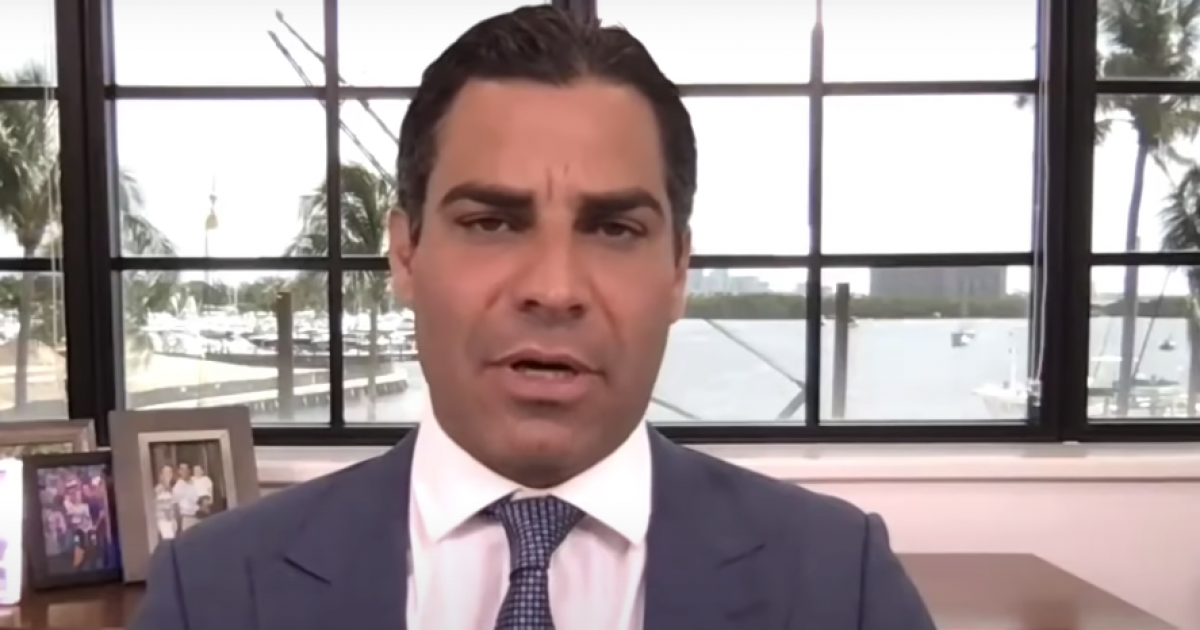
Earlier this month, Cubans came out in force to protest against their government for a diverse array of reasons — from its repressive nature to its overall economic mismanagement. Naturally, the protests in Cuba attracted the attention of American political observers.
Since Fidel Castro pulled off a successful revolution against the government of Fulgencio Batista at the end of 1958, millions of Cubans have fled to the US, primarily settling down in South Florida. Cubans have gained notoriety for embedding themselves in Republican politics and being one of the most staunch anti-communist/anti-socialist voices within the GOP’s coalition.
Obviously, politically active Cubans had plenty to say about the recent wave of protests. One of those was Francis Suarez, the mayor of Miami, who is the son of Cuban migrants. In fact, Suarez has even called for the US government to intervene in Cuba through air strikes. During an interview with Fox News on July 13, 2021, Suarez made the case for intervening in Cuba and even alluded to Kosovo bombings of 1999 that NATO carried out as an example to potentially emulate.
When he was asked if the US should consider air strikes on Cuba, Suarez stated, “What I’m suggesting is that option is one that has to be explored and cannot be just simply discarded as an option that is not on the table.”
“And there’s a variety of ways the military can do it. But that’s something that needs to be discussed and needs to be looked as a potential option in addition to a variety of other options that can be discussed,” the Miami mayor continued.
Suarez expanded on some of the past military interventions that the US could emulate in a potential clash with Cuba:
What should be being contemplated right now is a coalition of potential military action in Cuba similar to what has happened in both administrations in both Republican and Democrat administrations. And Republican–with Bush in Panama, they deposed Noriega. And that country had peaceful democracy for decades. And you had interventions by a Democratic president taking out Osama bin laden in Pakistan. It’s a sovereign country where they took out a terrorist and saved probably thousands, if not hundreds of thousands of lives. And president Clinton in Kosovo intervening in a humanitarian issue with air strikes.
Suarez emphasized that “The US has intervened in Latin America in numerous occasions and has been very successful.” The Miami mayor declared that Cuba is a threat to American interests due to how it’s allegedly “exporting communism throughout the hemisphere.”
The good news is that the Biden administration doesn’t have any plans to invade or use airstrikes against Cuba for now. Though the Biden administration will likely use sanctions and other unconventional measures in an attempt to change political outcomes in Cuba.
At the end of the day, the Cuban people should be the ones who ultimately determine the island’s fate not the US government.
Let’s face it, Cuba no longer presents a threat after the US settled the Cuban Missile Crisis with the Soviet Union. In effect, a modus vivendi has been created between the great powers in which there will be no militarization of the island so as to keep any type of great power conflict in check.
However, there are still many American interests that want to get America mired in an intervention in Cuba. Some neocon types want to turn the island into a shopping mall and outpost of the American empire. The liberal interventionists definitely want to extend their influence into the island, albeit with geoeconomic and culturally subversive levers.
Indeed, the Cuban regime is brutal and its Communist policies have turned the once prosperous island into a basket case. However, engaging in another intervention is not in the US interest. The US should enact pragmatic measures such as restricting immigration from Cuba so as to prevent a Fifth Column from forming inside the US. Outside of that, the US should exercise restraint and let the Cuban people determine the fate of the island. With the Castro family fading away, there is stronger potential for political change on the island.
However, a US intervention could galvanize nationalist elements in the Cuban government and make it much more difficult for pragmatic voices to be heard in Cuba.



